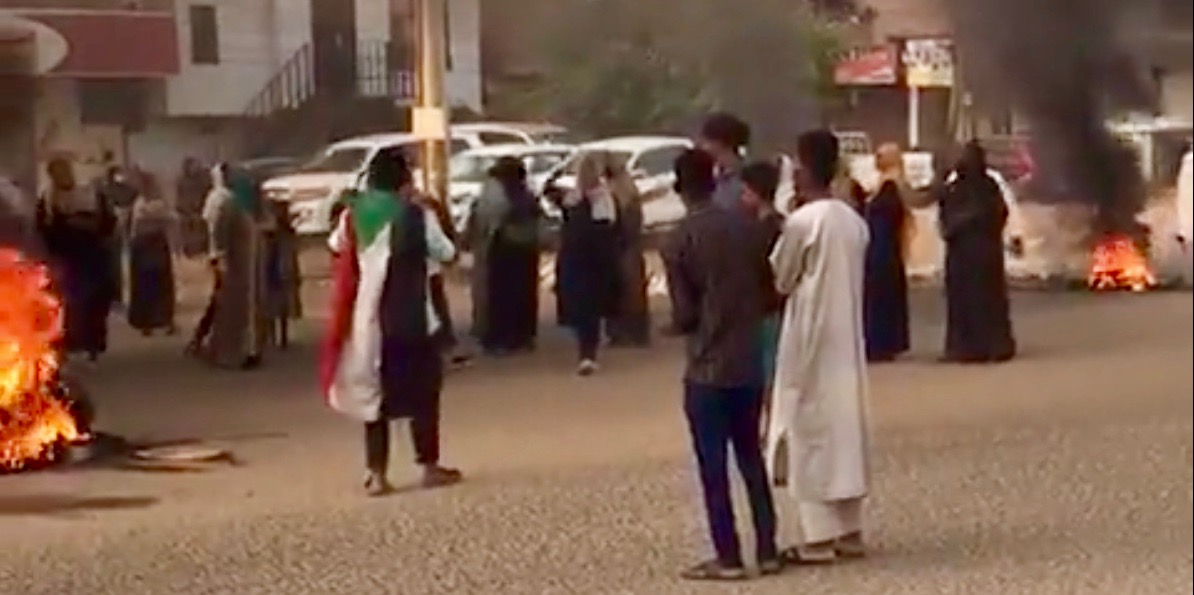Thousands protest military coup while civilian leadership remain detained
25 August 2021
Thousands of civilians are now protesting in the streets of Khartoum and Omdurman after Sudan’s Sovereign Council leader Lt-Gen Abdel-Fattah al-Burhan launched a military coup at dawn this morning.
Security forces have detained Prime Minister Abdalla Hamdok and his wife along with senior political leaders, including the ministers of information and industry and the Khartoum State governor, according to local sources and news reports. The Prime Minister called on the public to protest the takeover on social media while under house arrest. Security forces relocated the premier and his wife this afternoon, at the time of reporting their exact whereabouts is unknown.
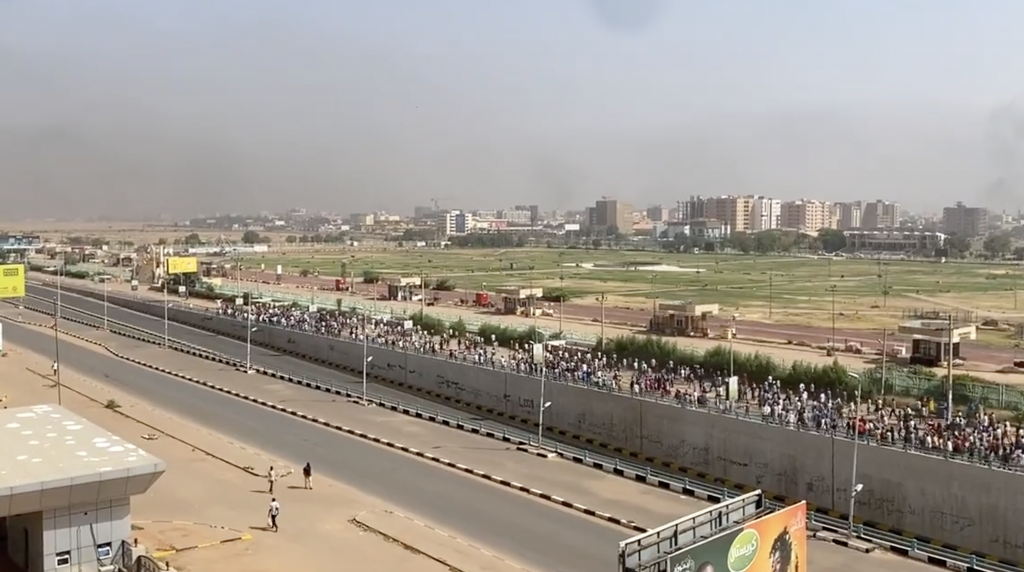
“The people are stronger, stronger,” and “retreat is not an option!” are some of the chants that can be heard from civilian protestors against the military takeover in downtown Khartoum today, including a mass protest along a major road next to the airport, Africa Street. Soldiers have reportedly fired live rounds of ammunition at some of the protestors, according to eyewitness sources. The independent Sudan Central Committee of Doctors has reported three casualties and 20 injuries among the protestors so far.
“We cannot go back and will remain on the streets even if it kills us,” said one demonstrator, Ahmed Saeed Ibrahim, in Khartoum. Demonstrations against the coup are also taking place across the country including in the cities of Atbara, Wad Medani and Port Sudan, according to news reports.
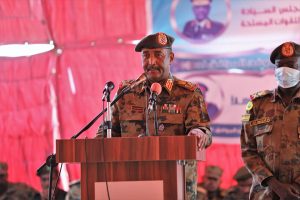
Burhan declared in a televised address that the military will now lead and appoint a technocratic government for the transitional period, dissolving the Sovereign and Ministerial Councils and freezing the work of the Dismantling Committee, a government body set up to identify and prosecute individuals aligned to the former regime. Perhaps as a token gesture to appease the public, Burhan claimed a legislative body made up of “young men and women who made this revolution” would take place during this transitional period before holding elections in July 2023.
The former Sovereign Council leader claimed infighting between politicians, ambition and incitement to violence had “forced him” to act to protect the safety of the nation and to “rectify the revolution’s course”. For the past few months, the military leader and his deputy Gen. Mohammed Hamdan Daglo (known by his nickname ‘Himmedti’) have publicly claimed the transitional government comprised of military and civilian leaders had collapsed and called for widening the political structure.
Since September, Sudan has experienced a series of events that have triggered political instability and supported the dissolution of the transitional government in favour of a military takeover. This includes protests in Eastern Sudan led by a cadre of the former regime, Mohamed al-Amin Terk, an alleged coup attempt by military officers, and a division within the now-dissolved Forces for Freedom and Change (FFC).
In a previous interview with Ayin, former Peace Advisor to the Prime Minister Professor Juma Kunda said the incidents of insecurity taking place across the country, particularly in Darfur, South Kordofan and more recently Eastern Sudan, are all linked and deliberately instigated by elements of the former regime to spark political instability. “What is happening in eastern Sudan followed what began in Darfur –then moved to South Kordofan, which witnessed tribal fighting, armed confrontations, and looting last year.”
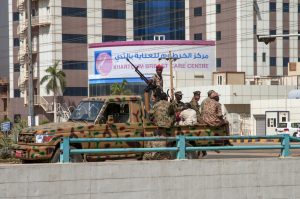
The Darfur region, for example, has witnessed a 31% increase in cases in political violence since the Juba Peace Agreement between the transitional government and rebel groups was signed in October last year, according to researcher Tiziana Corda.
A political analyst preferring anonymity for security purposes told Ayin the latest move by Burhan and Himmedti, along with the protests led by the FFC splinter group under former rebel leaders Minni Arko Minnawi and Jibril Ibrahim, represent a bid for political survival. All of these leaders could face transitional justice, the analysts said, if the former constitution was adhered to and the Sovereign Council leadership shifted to civilian rule. Although the exact date is disputed, the transfer of power was slated to take place next month.
A day prior to the coup, for instance, FFC leader and Minister of Industry Ibrahim al-Sheikh wrote a scathing rebuttal on social media to Burhan’s advisor, Brigadier-General Al-Taher Abu Haga, calling for Burhan to step down. The letter indicated the involvement of the army and paramilitary Rapid Support Forces (RSF), in the violent dispersal of the revolution on 3 June 2019 that killed over 100 revolutionaries and questioned the security structures under Burhan’s leadership.
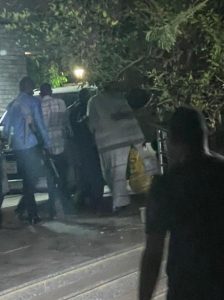
“Have you ever heard of a general leadership of a professional army whose gates are guarded by militias?” penned al-Sheikh. “Does it provide us with an explanation we can swallow? How did the [military] headquarters and Security Service centres become headquarters for the Rapid Support Forces?” The minister was detained along with other political leaders early this morning.
The coup has received wide condemnation from the international community, including the United States, whose Horn of Africa Envoy Jeffrey Feltman had met Burhan a day before the coup took place. Feltman said in a statement that the U.S. is deeply concerned and that current events would endanger future aid pledged for the country. The Africa Union’s Chairperson, Moussa Faki Mahamat, also released a statement calling for the release of all political leaders and urged dialogue between the civilian and military forces.
But Sudan’s military and security wings still receive wide international support from Egypt and the Gulf countries, especially the United Arab Emirates and Saudi Arabia, the analysts said.


